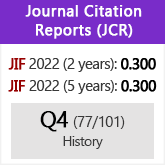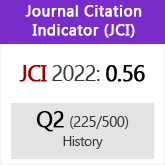The Mexican political fracture and the 1954 coup in Guatemala (The beginnings of the cold war in Latin America)
DOI:
https://doi.org/10.3989/chdj.2015.006Keywords:
Cold war, cardenismo, fracture, anti-Communism, intervention, stability, destabilizationAbstract
This article challenges two general assumptions that have guided the study of Mexican foreign policy in the last four decades. First, that from this policy emerges national consensus; and, secondly that between Mexico and the US there is a “special relation” thanks to which Mexico has been able to develop an autonomous foreign policy. The two assumptions are discussed in light of the impact on Mexican domestic politics of the 1954 USsponsored military coup against the government of government of Guatemala. In Mexico, the US intervention reopened a political fracture that had first appeared in the 1930’s, as a result of President Cárdenas’radical policies that divided Mexican society. These divisions were barely dissimulated by the nationalist doctrine adopted by the government. The Guatemalan Crisis brought some of them into the open. The Mexican President, Adolfo Ruiz Cortines’ priority was the preservation of political stability. He feared the US government might feel the need to intervene in Mexico to prevent a serious disruption of the status quo. Thus, Ruiz Cortines found himself in a delicate position in which he had to solve the conflicts derived from a divided elite and a fractured society, all this under the pressure of US’ expectations regarding a secure southern border.
Downloads
References
Barrett, David M (2011) "Sterilizing a 'Red Infection'. Congress, the CIA, and Guatemala, 1954", Central Intelligence Agency (US), https://www.cia.gov/library-center-for-the-study-of-intelligence/ kent-csi/vol/44no5/html/44i5a03p.htm [Accessed 01/03/2015]
Blanton, Thomas S (2008) "Recovering the memory of the Cold War. Forensic history and Latin America". In from the Cold. Latin America's new Encounter with the Cold War, edited by Gilbert M. Joseph and Daniela Spenser. Duke University Press, Durham y Londres: 47-73.
Brandenburg, Frank Ralph (1964) The Making of Modern Mexico. Prentice.Hall, Inc., New Haven.
Buchenau, Ju.rgen (2004) "Por una guerra fría más templada: México entre el cambio revolucionario y la reacción estadunidense en Guatemala y Cuba". En Espejos de la guerra fría: México, América Latina y el Caribe, coordinado por Daniela Spenser. SRE, CIESAS, Porrúa, México: 119-149.
Cámara de Diputados, XLVI Legislatura (1966) Los presidentes de México ante la nación, 1821-1966. Talleres Gráficos de la Nación, México, 5 volúmenes.
Cárdenas, Héctor (1993) Historia de las relaciones entre México y Rusia. Secretaría de Relaciones Exteriores, Fondo de Cultura Económica, México.
Cárdenas, Lázaro (1973) Obras I. Apuntes 1941/1956. UNAM, Nueva Biblioteca Mexicana, México, 2 vols.
Cárdenas, Lázaro (1973) Obras. I- Apuntes 1957-1966. UNAM, Nueva Biblioteca Mexicana, México, 2 vols.
Cardoza y Aragón, Luis (1956) La revolución guatemalteca. Ediciones Pueblos Unidos, Montevideo.
Carr, Barry (1996) La izquierda mexicana a través del siglo XX. Ediciones Era, México.
Casta-eda, Jorge (1956) México y el orden internacional. El Colegio de México, México.
Coleman, Kenneth M (1976) Diffuse Support in Mexico: the Potential for Crisis. Sage publications, London.
Cosío Villegas, Daniel (1986) Memorias. Lecturas Mexicanas Segunda Serie, 55, Joaquín Mortiz- SEP, Mexico.
Covarrubias, Ana (2008) "México y la Revolución cubana. La independencia de un país dependiente". En Ensayos de política internacional. Homenaje a Olga Pellicer. coordinado por Arturo C. Sotomayor Velázquez and Gustavo Vega Cánovas. El Colegio de México/Instituto Tecnológico Autónomo de México/ Centro de Investigación y Docencia Económicas, México: 25-46.
Craig, Campbell y Frederik Logevall (2012) America's Cold War, The Politics of Insecurity. The Belknap Press of Harvard University Press, USA.
Cullather, Nick (2006) Secret History: The CIA 's Classified Account of its Operation in Guatemala, 1952-1954. Stanford University Press, Stanford, CA.
Department of State (1954) Intervention of International Communism in Guatemala. Greenwood Publishers, Westport, Conneticut.
Fenn, Peggy (1963) "México, la No-Intervención y la autodeterminación en el caso de Cuba". Foro Internacional, IV-1: 1-19.
Gaddis Smith (1994) The Last Years of the Monroe Doctrine. 1945-1993. Hill and Wang, New York.
García Ferreira, Roberto (2007) "El caso de Guatemala: Arévalo, Árbenz y la izquierda uruguaya, 1950-1971". Mesamérica, 49: 25-58.
Gleijeses, Piero (1992) Hope shattered. The Guatemalan Revolution and the United States, 1944-1954. Princeton, Princeton, New Jersey.
Gordon Connell-Smith (1966) The Inter-American System. Londres, Nueva York y Toronto, Oxford University Press.
Hove, Mark T (2007) "The Arbenz factor: Salvador Allende, U.S.- Chilean relations and the 1954 U.S. intervention in Guatemala". Diplomatic History, 31 (4): 623-663. http://dx.doi.org/10.1111/j.1467-7709.2007.00656.x
Instituto Nacional de Estadística, Geografía e Informática, (1985) Estadísticas Históricas de México. INEGI-INAH, México, 2 volúmenes.
Jeifets, Víctor y Lazar Jeifets (2010) "Los archivos rusos revelan secretos: el movimiento de la izquierda latinoamericana a la luz de los documentos de la Internacional Comunista". Anuario Americanista Europeo, 8: 2221-3872.
Joseph, Gilbert, M. y Daniela Spenser, (editors) (2008) In from the Cold. Latin America's new Encounter with the Cold War. Duke University Press, Durham y Londres.
Knight, Alan (1994) "Cardenismo: Juggernaut or jalopy?". Journal of Latin American Studies, 26 (1): 73-107. http://dx.doi.org/10.1017/S0022216X0001885X
Katz, Friedrich (1981) The Secret War in Mexico. Europe, the United States and the Mexican Revolution. University of Chicago, Chicago and London.
Keller, Renata (2012) "A foreign policy for domestic consumption. Mexico's lukewarm defense of Castro, 1959-1969". Latin American Research Review, 47 (2): 100-119. http://dx.doi.org/10.1353/lar.2012.0003
Leffler, Melvyn P (1984) "The American conception of national security and the beginnings of the Cold War, 1945-1948". The American Historical Review, 89 (2): 346-381. http://dx.doi.org/10.2307/1862556
Linz, Juan J (1978) "Teoría del régimen autoritario: el caso de Espa-a". En Política y sociedad en la Espa-a del siglo XX, Stanley G.Payne editor. Akal editores, Madrid: 205-226.
Lombardo Toledano, Vicente (1954) Obra Histórica-Cronológica. Centro de Estudios Filosóficos, Políticos y Sociales Vicente Lombardo Toledano, México.
Loaeza, Soledad (1988) Clases medias y política en México. La querella escolar 1959-1963. El Colegio de México, México.
Loaeza, Soledad, (2012) La restauración de la Iglesia católica en la transición mexicana. El Colegio de México, México.
Meyer, Lorenzo (2010) México y el mundo, Historia de sus relaciones exteriores, La marca del nacionalismo. El Colegio de México, México.
Morgenfeld, Leandro Ariel (2010) "El inicio de la Guerra Fría y el sistema interamericano. Argentina frente a Estados Unidos en la Conferencia de Caracas (1954)". Contemporánea, Historia y Problemas del siglo XX, vol.1: 75-97.
Ojeda, Mario (1976) Alcances y límites de la política exterior de México. El Colegio de México, México.
Patch, Chester J. y Elmo Richardson (1991) The Presidency of Dwight D.Eisenhower. University Press of Kansas, Kansas.
Pellicer, Olga (1965-1966) "México en la OEA". Foro Internacional, VI-2 (3): 288-302.
Pellicer, Olga (1968) "La revolución cubana en México". Foro Internacional, VIII-4: 360-383.
Pellicer, Olga, (1972) México y la revolución cubana. El Colegio de México, México.
Rabe, Stephen G (1988) Eisenhower and Latin America. The Foreign Policy of Anticommunism. The University of North Carolina Press, Chapel Hill and London.
Rabe, Stephen G (2012) The Killing Zone, The United States wages Cold War in Latin America. Oxford University Press, New York and Oxford.
Robinson, Nancy (1987) "México frente a la crisis de Guatemala en 1954". Boletin americanista, 37: 225-232.
Rodríguez Kuri (2008) "Los a-os maravillosos: Adolfo Ruiz Cortines". En Gobernantes mexicanos, coordinado por Will Fowler. Fondo de Cultura Económica, México, Tomo 2: 265-286.
Sabino, Carlos (2007) La historia silenciada. 1944-1989, Revolución y Liberación. Fondo de Cultura Económica, México.
Servín, Elisa (2004) "Propaganda y Guerra Fría: la campa-a anticomunista en la prensa mexicana del medio siglo". Signos Históricos, número 11: 9-39, Universidad Autónoma Metropolitana, Unidad Iztapalapa.
Sewell, Bevan (2008) "A perfect (Free-Market) world? Economics, the Eisenhower administration, and the Soviet economic offensive in Latin America". Diplomatic History, 32 (5): 841-878. http://dx.doi.org/10.1111/j.1467-7709.2008.00732.x
Sola Ayape, Carlos (2014) "Contra las cortes de ultratumba' y la 'legalidad de opereta': escritores de la derecha mexicana y sus críticas al exilio republicano espa-ol.". En 1945, entre la euforia y la esperanza: el México posrevolucionario y el exilio republicano espa-ol, editado por Mari Carmen Serra Puche, José Francisco Mejía Flores y Carlos Sola Ayape. Cátedra del Exilio, Fondo de Cultura Económica, México: 273-304.
Spenser, Daniela (1999) The Impossible Triangle. Mexico, Soviet Russia, and the United States in the 1920's. Duke University Press, Durham and Londres.
Spenser, Daniela (2010) "Vicente Lombardo Toledano envuelto en antagonismos internacionales". En Revolución y exilio en la historia de México, Del amor de un historiador a su patria adoptiva. Homenaje a Friedrich Katz, compiladores Javier Garciadiego y Emilio Kouri. El Colegio de México, Universidad de Chicago, Ediciones Era, México: 251-269.
Torres, Blanca (2010) México y el mundo. Historia de sus relaciones exteriores. De la guerra al mundo bipolar. El Colegio de México, México.
Published
How to Cite
Issue
Section
License
Copyright (c) 2015 Consejo Superior de Investigaciones Científicas (CSIC)

This work is licensed under a Creative Commons Attribution 4.0 International License.
© CSIC. Manuscripts published in both the printed and online versions of this Journal are the property of Consejo Superior de Investigaciones Científicas, and quoting this source is a requirement for any partial or full reproduction.All contents of this electronic edition, except where otherwise noted, are distributed under a “Creative Commons Attribution 4.0 International” (CC BY 4.0) License. You may read here the basic information and the legal text of the license. The indication of the CC BY 4.0 License must be expressly stated in this way when necessary.
Self-archiving in repositories, personal webpages or similar, of any version other than the published by the Editor, is not allowed.

















